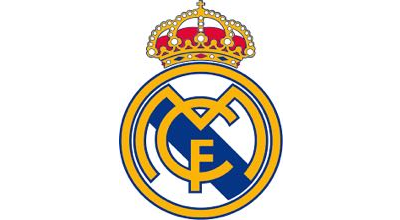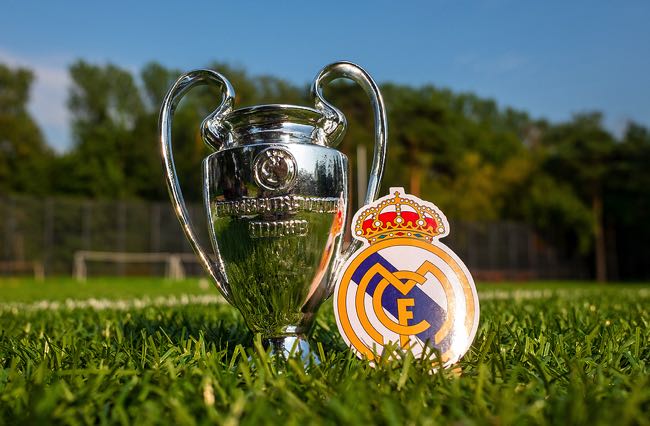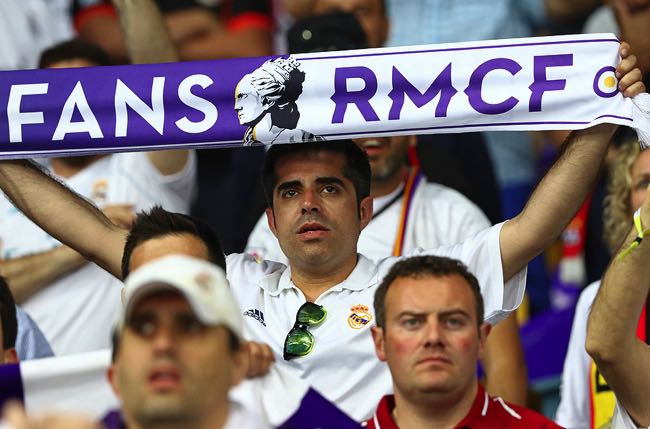 Real Madrid are, by most sensible metrics, the most successful football club that has ever existed. Domestically they are well ahead of Barcelona in terms of La Liga titles (35 versus 26, as of 2022) but it is in terms of the Champions League (and here we include the European Cup too) where the dominance is most marked.
Real Madrid are, by most sensible metrics, the most successful football club that has ever existed. Domestically they are well ahead of Barcelona in terms of La Liga titles (35 versus 26, as of 2022) but it is in terms of the Champions League (and here we include the European Cup too) where the dominance is most marked.
Real’s tremendous record in the most prized tournament in European football means they have won more European Cups/Champions Leagues than Liverpool, Man United, Chelsea and Juventus combined. Let’s take a closer look at that incredible history in this elite competition.
When Did Real Madrid Last Win the Champions League?
There have been periods in Real’s history where they have had to endure a long wait between one UEFA Champions League (UCL) title and the next. However, right now we are in one of their multiple golden eras and at the time of writing they are the defending champions, having beaten Liverpool 1-0 in the final in Paris on the 28th of May, 2022.
Champions League Finals
As well as being well ahead when it comes to UCL titles, Real have also appeared in the most finals. They have made the showpiece game 17 times since the first European Cup in 1955/56 (guess who won the competition in that inaugural season?!), six ahead of both AC Milan and Bayern Munich and seven ahead of Liverpool.
| Year | Opponent | Result | Score |
|---|---|---|---|
| 2022 | Liverpool | Won | 1-0 |
| 2018 | Liverpool | Won | 3-1 |
| 2017 | Juventus | Won | 4-1 |
| 2016 | Atletico Madrid | Won | 1-1 AET (5-3 on penalties) |
| 2014 | Atletico Madrid | Won | 4-1 (AET) |
| 2002 | Bayer Leverkusen | Won | 2-1 |
| 2000 | Valencia | Won | 3-0 |
| 1998 | Juventus | Won | 1-0 |
| 1981 | Liverpool | Lost | 1-0 |
| 1966 | Partizan Belgrade | Won | 2-1 |
| 1964 | Inter Milan | Lost | 3-1 |
| 1962 | Benfica | Lost | 5-3 |
| 1960 | Eintracht Frankfurt | Won | 7-3 |
| 1959 | Reims | Won | 2-0 |
| 1958 | Milan | Won | 3-2 (AET) |
| 1957 | Fiorentina | Won | 2-0 |
| 1956 | Reims | Won | 4-3 |
Stage of Elimination
Such has been Real Madrid’s sustained excellence that they have played in this competition 52 times. Since the competition was rebranded to the Champions League they have been virtually ever-present, missing out a few times in the early years but playing in the UCL every season since 1997/98.
The table below gives details of the stage they were eliminated at, although it should be noted that the structure of the competition has changed many times over the years. This means that not all phases existed in every season, whilst a team would have had to win a different number of games to reach the same stage of the competition depending on the season and structure of that campaign.
| Stage | Number of Times | Percentage |
|---|---|---|
| Won | 14 | 27% |
| Final | 3 | 6% |
| Semi Final | 14 | 27% |
| Quarter Final | 6 | 12% |
| Round of 16 | 14 | 27% |
| Round of 32 | 1 | 2% |
Note that this data is accurate prior to the 2022/23 season. Information is based on all European Cups and Champions Leagues Real Madrid qualified for. Percentages do not total 100 due to rounding.
Times Real Madrid Won the Premier League Cup

fifg / Bigstockphoto.com
For the sake of brevity, we will not provide full information on every single one of Real Madrid’s incredible 14 Champions League titles. Instead we will look at them in “batches”, with many of their triumphs tending to come in clumps and coinciding with some of their greatest ever teams.
La Decima at Last & New Golden Age Begins
If you are Real Madrid it would seem that Champions Leagues and European Cups are a little like busses. Stuck on nine titles from 2002 for over a decade, some Madridistas may have feared that the 10th, crowned “La Decima”, would never come. However, in 2013/14 it did, thanks to the brilliant management of Carlo Ancelotti and a goal from a Brit, Gareth Bale.
Sergio Ramos: Man of the Match
It was an all-Madrid final and Atletico took the lead and looked set to deny their more glamourous rivals. Deep into stoppage time Sergio Ramos scored a trademark header to take the game to extra time and from there on it seemed there would only be one winner. Real effectively won 3-0 in extra time to claim a historic 10th title 4-1 overall. This marked the start of the Cristiano Ronaldo era, the Portuguese ace netting the fourth from the spot.
Two years later history would repeat itself as once again it was an all-Madrid final and once again the team in white won. This time it not only went to extra time but also to penalties, that man Ramos again proving crucial for his side, scoring the game’s opening goal and going on to win Man of the Match. The game was 1-1 after both 90 and 120 minutes but as Real scored all five (Ramos, Bale and Ronaldo among the scorers), Atleti’s Juanfran missed.
Zidane Returns as Manager
By this time, Zidane had returned to the club as the manager and he won an incredible hat-trick of CL trophies, following up this success in 2017 and 2018. In 2017, Atletico were banished in the semis before Real saw off Juventus with ease, winning 4-1 in the final. A year later came another stunning triumph as Real escaped a tough group with Spurs and Dortmund in it, before beating PSG, Juve, Bayern and then Liverpool.
This final may be remembered for the terrible goalkeeping of Liverpool’s stand-in stopper, Loris Karius, and also the injury to Mo Salah, but we should not forget another stunning CL final goal from Gareth Bale, the Welshman scoring his second and the game’s third as well.
The Spanish giants then had a couple of seasons where they decided to let someone else have a go before claiming glory yet again in 2022. Man City and Liverpool were heavily fancied but Real saw off both English teams, as well as defending champions Chelsea and French champions, PSG. With a run to victory like that nobody can say Los Blancos did not deserve this amazing 14th triumph but they certainly rode their luck along the way.
Ancelotti Back at the Helm
With Italian boss Ancelotti back at the helm, Madrid seemed to have their name written on the cup as they scored late goal after late goal. They topped Group D but not before a shock loss to Sheriff Tiraspol, whilst they looked doomed against PSG before a hat-trick from Karin Benzema turned the tie on its head. The French striker scored in the 61st, 76th and 78th minutes to send his side through 3-2 on aggregate.
Rodrygo Saves the Day
In the next round the drama came even later, Real taking it to extra time with a goal in the 80th minute of the second leg before Benzema decided it once again with a winner in the additional period. That 5-4 aggregate win was outdone in the semis as, incredibly, Los Blancos denied City 6-5. City won the first leg at home 4-3 but they should have been out of sight.
Despite wasting chances, City looked set for a final against Liverpool before Rodrygo somehow turned the tie on its head. He scored in the 90th and 91st minutes to force extra time before a stunned City succumbed to, that man again, Benzema. Compared to all that the final was a relatively sedate affair as former Chelsea and Everton boss Ancelotti masterminded a fine 1-0 win, helped in no small part by a brilliant performance by his goalkeeper, Thibaut Courtois.
Long Wait Ended
If Madrid thought the gap between their fifth and sixth titles was long, they had to wait considerably longer to claim their seventh victory in the Champions League, as the competition was by then known. They had lost a final in 1981, to Liverpool, but it was not until 1998 that they won another European title. They edged Juve in the final 1-0 having beaten Germans Bayer Leverkusen and Borussia Dortmund in the quarters and semis respectively.
They won again in 2000, a second title for a great batch of players that included Roberto Carlos, Raul and Fernando Morientes, defeating Spanish rivals Valencia 3-0 in the final. That game may be best remembered for a stunning volley from former Liverpool player Steve McManaman which made it 2-0, Raul and Morientes scoring the others.
Two years later and the side from the capital were back in the final where they beat Leverkusen again. The Germans had dumped out all three English sides, Arsenal, Liverpool and, in the semis, Man United, but were no match for Real. The big game finished 2-1 to Madrid and again we saw a spectacular volley, this time from French ace Zinedine Zidane, truly one of the great Champions League goals.
This was the Madrid of the Galactico era, with Luis Figo lining up alongside Zidane, whilst Carlos, captain Fernando Hierro, Raul and Morientes added yet another CL trophy to their lockers. This was a triumph to savour too, with the Spaniards beating Barca in the semis and Bayern Munich in the quarters.
Total Dominance in Early Years
Some would argue the first ever “European Cup” came way back in 1895 in what was called the World Championship. This saw the champions of England and Scotland meet, with Sunderland beating Hearts 5-3. However, whilst there were many further competitions and cups that pitted the champions of different European nations against one another, it wasn’t until the 1955/56 season that we saw the first true European Cup. The editor of the famous French sports publication, L’Equipe, Gabriel Hanot was the driver behind this and after some doubts, UEFA went ahead with the competition.
Real Legend: Alfredo Di Stefano
In the first edition, 16 teams took place, each from a different European nation. Los Blancos won that inaugural tournament, coming from behind to see off French outfit Stade de Reims 4-3 in Paris at the Parc des Prince. Real legend, Alfredo Di Stefano, was among the scorers in the final and he would go on to play a key role in the Spanish giants’ early domination of the competition.
The Argentina-born Spanish forward is currently ninth on the all-time list of UCL goalscorers, notching 49 times in 58 games at 0.84 goals per game. That is the best goals-to-games ratio of anyone on the top 10 list, with Robert Lewandowski second on 0.81 and Lionel Messi third on 0.80. Another Real legend, Cristiano Ronaldo, is the top scorer in the CL and averages 0.77 goals per game.
Di Stefano won five European Cups as his Real reeled off five titles in a row in the first half-decade of the competition. In 1956/57 they beat Man United in the semis before bettering Italians Fiorentina 2-0 in the final. In these early days it was generally a straight knockout format with a two-legged preliminary phase, the first round, the quarter finals and semis, before a final at a neutral venue.
Other Invaluable Players
Real’s golden team also included Argentine striker, Hector Rial, Paco Gento, who boasts a record six European Cups to his name and also won 12 La Liga titles with Madrid, Hungarian icon Ferenc Puskas and a host of other world-class players. Much of this great team stayed together for all five consecutive wins as Real claimed a hat-trick by seeing off Antwerp, Sevilla, Vasas (from Hungary) and Milan to win in 1958. They made it four by beating Madrid rivals Atletico in the next season’s semis before again seeing off Reims in the final.
Their next triumph was arguably their finest in the competition as they swept Eintracht Frankfurt aside 7-3 in the final, playing some magical attacking football. That followed a 12-2 aggregate win in the first round and 6-3 in the second, before they beat great rivals Barcelona 3-1 both home and away in the semis. In the final Di Stefano got a hat-trick and Puskas went one better, netting four in a true masterclass.
Madrid then had a minor fallow period but returned to the final for the 1965/66 campaign, where they beat Partizan 2-1, coming from behind in the last 20 minutes. This was very much a new Madrid, with Paco Gento, now captain, the only survivor from the glory days of the 1950s.
Real Madrid’s Worst Upsets

katatonia82 / Bigstockphoto.com
As you have probably gathered, Real Madrid, Champions League and upsets are not often words and phrases combined in sentences. There has been the odd upset here and there, of course, for example the aforementioned loss to Moldovan minnows Sheriff. In addition there have been seasons where they have done worse than others.
In that regard, the 1962/63 season can be seen as their worst as they lost in the preliminary round, which was the Round of 32 back then (in modern parlance). Anderlecht were the team to shock them then, whilst a couple of years earlier they lost in the first round. That they were defeated by Barca probably made that all the harder to take.
More recently, the period between their triumph in 2002 and then in 2014 can be seen as a relatively poor one… by their crazy standards that is. In the 11 complete campaigns between those two victories they made the semis just four times, were eliminated in the quarters once and, from 2005 to 2010 inclusive were eliminated at the last 16 stage on six consecutive occasions.
